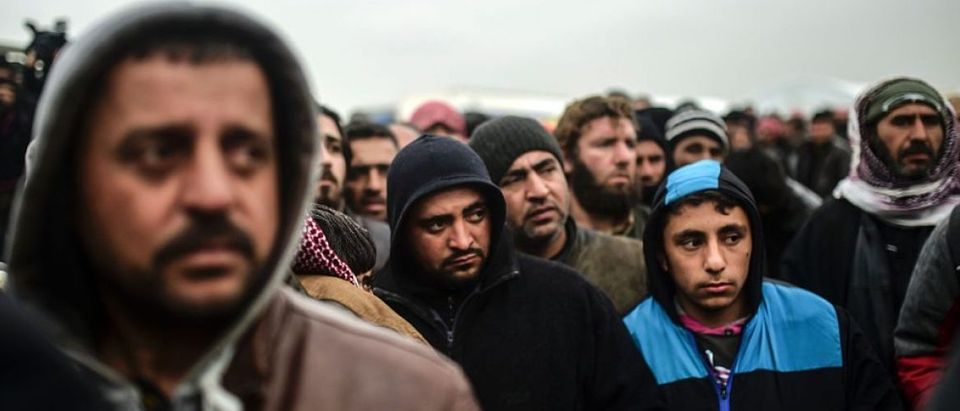President Donald Trump signed an executive order Friday barring Syrian refugees from the U.S. “until further notice.”
The executive order states that Syrian refugees may not enter the U.S. until their admission into the country is deemed “consistent with the national interest.” The U.S. refugee program has been suspended for 120 days, and persons from several predominantly-Muslim, terror-prone countries — specifically Syria, Iran, Iraq, Libya, Somalia, Sudan, and Yemen — may not travel to the U.S. for 90 days. The president’s order went into effect immediately.
“The entry of nationals of Syria as refugees is detrimental to the interests of the United States,” the order reads.
The travel restrictions put in place by the executive order give the administration time to develop an improved screening process for foreign visitors.
“Numerous foreign-born individuals have been convicted or implicated in terrorism-related crimes … including foreign nationals who entered the United States after receiving visitor, student, or employment visas, or who entered through the United States refugee resettlement program,” the president’s order explains.
“The United States must be vigilant during the visa-issuance process to ensure that those approved for admission do not intend to harm Americans and that they have no ties to terrorism,” the order further states.
The executive order makes good on Trump’s campaign promises to strengthen America’s borders and prevent individuals who may pose a national security threat from entering the country.
“We don’t want them here. We want to ensure that we are not admitting into our countries the very threats that our soldiers are fighting overseas,” he said Friday. Trump asserts that the order is designed to “keep radical Islamic terrorists out of the United States of America” and “to protect the American people.”
“We only want to admit those into our country who love our country, and love deeply our people,” Trump added.
The order gives the Department of Homeland Security the authority to prioritize refugee claims made “on the basis of religious based persecution,” as long as the applicant is of “a minority religion in the individual’s country of nationality.” The caveat gives room for special exceptions of Yazidi or Christian refugees ISIS targets particularly for extermination or slavery.
“We are going to help them,” Trump said, talking about Christians persecuted abroad, “They’ve been horribly treated.”
“Do you know if you were a Christian in Syria it was impossible, at least very tough, to get into the United States? If you were a Muslim you could come, but if you were a Christian, it was almost impossible,” Trump explained.
“They were chopping off the heads of everybody, but more so the Christians. And I thought it was very, very unfair,” he added.
Opponents have decried Trump’s order as a “Muslim ban.”
“Make no mistake — this is a Muslim ban,” Sen. Kamala Harris, a California Democrat, said in response.
“President Trump has cloaked what is a discriminatory ban against nationals of Muslim countries under the banner of national security,” Greg Chen of the American Immigration Lawyers Association told reporters.
The Council on American-Islamic Relations intends to challenge the order’s constitutionality, arguing that it is discrimination in violation of the freedom of religion.
“There is no evidence that refugees — the most thoroughly vetted of all people entering our nation — are a threat to national security,” CAIR National Litigation Director Lena F. Masri said in a statement. “This is an order that is based on bigotry, not reality.”
Others, however, have praised Trump’s latest move.
“Our number one responsibility is to protect the homeland,” House Speaker Paul Ryan said, adding, “President Trump is right to make sure we are doing everything possible to know exactly who is entering our country.”
Send tips to ryan@
All content created by the Daily Caller News Foundation, an independent and nonpartisan newswire service, is available without charge to any legitimate news publisher that can provide a large audience. All republished articles must include our logo, our reporter’s byline and their DCNF affiliation. For any questions about our guidelines or partnering with us, please contact licensing@dailycallernewsfoundation.org.












